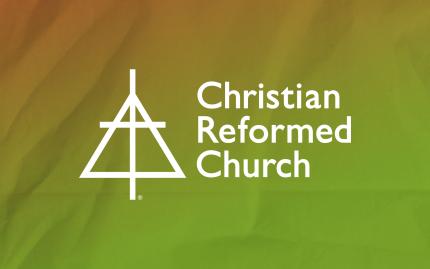Structure and Leadership Changes Pending

The Council of Delegates is recommending and taking initial steps to implement several changes in structure and leadership for the denomination. This includes changes to senior-level positions as well as an organizational structure that would address legal compliance with charitable regulations within Canada, strengthen governance and improve the culture of the CRCNA organization in Canada and the United States.
The recommendations, which will go to Synod 2022 for final approval, flowed from a report compiled by what has been called the Structure and Leadership Task Force (SALT). SALT was established by the COD in October 2020 after several months of wrestling with questions about how best to structure the denomination in a way that would both honor our unity and allow for country-specific direction and control in order to be in compliance with Canadian charitable law.
“The SALT team . . . sought to develop a leadership model and organizational design that would promote more durable and productive working relationships among CRCNA leadership and a mission-driven culture throughout the CRCNA organization,” the opening to the report explained. “The organizational values pursued were role function and clarity; mutuality and reciprocity; communication and trust.”
The report also recognized that the CRCNA is a church denomination governed both by Reformed polity and ecclesiology as well as by various state, provincial, and federal laws.
“As these governmental rules evolve and change over time, compliance efforts may be at odds with CRCNA Church Order. This currently is the case with rules and regulations for registered charities in Canada,” the report continued.
To rectify this situation, the task force recommended and the COD endorsed several key steps:
Culture
The CRCNA organizational culture has had an ongoing struggle between three cultural models, the SALT report explained: an ecclesiastical model, a corporate/legal model, and a ministry-focused organizational model.
Regardless of whether we are thinking of the CRCNA as an ecclesiastical body or a collection of nonprofit ministries, “The culture of the CRCNA organization should be characterized by cooperation, collaboration, and partnership,” explained the report.
“Each ministry institution, agency, program, and partner shares in the common mission of the CRCNA denomination and has a shared responsibility to advance the CRCNA Ministry Plan.”
Leadership Model
The task force recommended that in its most senior levels of leadership the denomination shift from a position of executive director of the CRCNA and instead focus on two key positions: General Secretary and Chief Administrative Officer. Both positions would serve together within a newly created Office of the General Secretary.
Both positions could be housed in either the United States or Canada and would serve the entire denomination. Their purpose would be to “ensure ecclesiastical and administrative integration” as well as to facilitate “the shared governance partnerships and relationships that characterize the binational denomination’s life, ministry, and mission.”
Governance
Given the complexity of being a denomination within two countries and having a structure that includes multiple boards, the CRCNA should establish an office on governance. This office would ensure compliance with regulatory issues, provide training and education of board members, and provide oversight of an expanded use of joint ministry agreements. While the exact construct of such an office needs to be determined, the task force indicated that they hoped it could be done without increased cost.
Joint Ministry Agreements
Joint ministry agreements are legal documents that outline expectations and responsibilities for multiple parties when they share ministry. The task force recommended that the CRCNA place increased emphasis on the use of joint ministry agreements to guide ecumenical affairs, governance, administration, and ministry in the United States and Canada. While joint ministry agreements are developed by ministry leaders, they would be approved by relevant ministry boards in Canada and the United States before becoming effective. The taskforce also recommended that Joint Ministry Agreements be used to guide partnerships between institutions, agencies, programs, and partners.
A Canadian CRCNA Office and Executive Director
The fifth key recommendation of the task force was to establish a Canadian Office of the CRCNA. While there already is a physical building for the CRCNA in Burlington, Ont., the task force recommended that there also be an official recognition of the Canadian arm of the CRCNA.
Establishing a Canadian office would mean that there would be a Canadian executive director position that was accountable directly to the Canadian board of the CRCNA. This would allow for clear direction and control of ministry activities by Canadians.
At the same time, the Canadian executive director would work in close partnership with the office of the General Secretary to ensure coordination, information sharing, and joint problem solving in relation to the CRCNA ministry plan and other shared denominational ministry goals.
The COD noted that their endorsement of these recommendations was just a first step. These changes will also need to be reviewed by legal counsel. Churches and classes will also be encouraged to provide their input by way of overtures or communications to Synod 2022.
Several COD members also questioned why the recommendations did not ask for the establishment of a U.S. office of the CRCNA in parallel to that of the Canadian office, or a U.S. executive director in parallel to the Canadian one. John Lee, chair of the SALT team, explained that this was because U.S. charitable law does not have the same regulatory requirements for direction and control as Canada. As such, that would have been outside of the specific mandate SALT was asked to complete.
“If the U.S. Corporation at some point in the future determines they need an executive director,” Fred Koning, task force reporter, said, “they could work directly with the Council of Delegates on such a proposal.”
In the meantime, the Council of Delegates and the Canada board will pull together search teams and identify candidates for the newly recommended positions, should Synod 2022 approve them.
For more details about the recommendations, see these Structure and Leadership FAQs.


